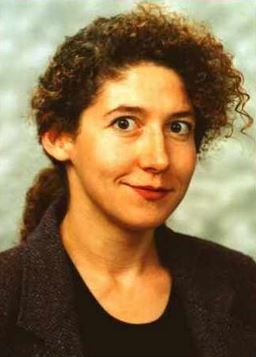Professor Tülay Adali, University of Maryland, Baltimore County, USA will give a talk on "Data Fusion Through Matrix and Tensor Decompositions" on Friday, 8 June 2018, at 14:30. Room P1.3.01.
Professor Adali is a leading expert in machine learning and signal processing for biomedical applications. Her talk is sponsored by the IEEE Signal Processing Society-Germany Chapter under its Distinguished Lecturer program. Abstract and biosketch are appended below.
Abstract: Fusion of information from multiple sets of data in order to extract a set of features that are most useful and relevant for the given task is inherent to many problems we deal with today. Multiple sets of data might come either from the same modality as in multi-subject or longitudinal data, or from different modalities where each modality provides complementary information about the problem under study. In the latter case, the datasets are typically of different nature, resolution, and size, posing even greater challenges to fusion. Models based on matrix or tensor decompositions provide attractive solutions for fusion of both types of data. They minimize the modeling assumptions—which is attractive as very little can be assumed about the relationship among the datasets—and at the same time, they can maximally exploit the interactions within and across the data. This talk will provide an overview of the main approaches based on matrix and tensor decompositions that have been successfully applied for fusion of multiple datasets with a focus on the interrelated concepts of uniqueness, diversity, and interpretability. Diversity refers to any structural, numerical, or statistical property or assumption on
the data that contributes to the identifiability of the model, which is key for interpretability, the ability to attach a physical meaning to the final decomposition. The relevance of these concepts as well as the challenges that remain are highlighted through a number of examples in fusion of medical imaging data.
Biosketch: Tülay Adali received the Ph.D. degree in Electrical Engineering from North Carolina State University, Raleigh, NC, USA, in 1992 and joined the faculty at the University of Maryland Baltimore County (UMBC), Baltimore, MD, the same year. She is currently a Distinguished University Professor in the Department of Computer Science and Electrical Engineering at UMBC and is the director of the Machine Learning for Signal Processing Lab (MLSP Lab).
Prof. Adali assisted in the organization of a number of international conferences and workshops including the IEEE International Conference on Acoustics, Speech, and Signal Processing (ICASSP), the IEEE International Workshop on Neural Networks for Signal Processing (NNSP), and the IEEE International Workshop on Machine Learning for Signal Processing (MLSP). She was the General Chair, NNSP (2001–2003); Technical Chair, MLSP (2004–2008); Program Chair, MLSP (2008, 2009, and 2014), International Conference on Independent Component Analysis and Source Separation (2009); Publicity Chair, ICASSP (2000 and 2005); and Publications Chair, ICASSP 2008. She was the Technical Program Co-Chair for ICASSP 2017 and is the Special Sessions Chair for ICASSP 2018. She is elected to serve as the Vice President-Technical Directions of the IEEE SPS 2019-2022.
Prof. Adali chaired the IEEE Signal Processing Society (SPS) MLSP Technical Committee (2003–2005, 2011–2013), and served or currently serving on a number of committees/boards including the SPS Conference Board (1998–2006, 2017-Present), IEEE SPS Fellow Reference Committee (2011-2014), IEEE SPS Signal Processing Theory and Methods (2010-2015) Technical Committee, and the IEEE SPS Bio Imaging and Signal Processing Technical Committee (2004–2007, 2018-Present). She was an Associate Editor for IEEE Transactions on Signal Processing (2003–2006), IEEE Transactions on Biomedical Engineering (2007–2013), IEEE Journal of Selected Areas in Signal Processing (2010-2013), and Elsevier Signal Processing Journal (2007–2010). She is currently serving on the Editorial Boards of the Proceedings of the IEEE and Journal of Signal Processing Systems for Signal, Image, and Video
Technology.
Prof. Adali is a Fellow of the IEEE and the AIMBE, a Fulbright Scholar, and an IEEE Signal Processing Society Distinguished Lecturer. She is the recipient of a 2013 University System of Maryland Regents' Award for Research, an NSF CAREER Award, and a number of paper awards including the 2010 IEEE Signal Processing Society Best Paper Award. Her current research interests are in the areas of statistical signal processing, machine learning, and applications in medical image analysis and fusion.
Faculty colloquium: IEEE Distinguished Lecture by Prof. Tülay Adali

